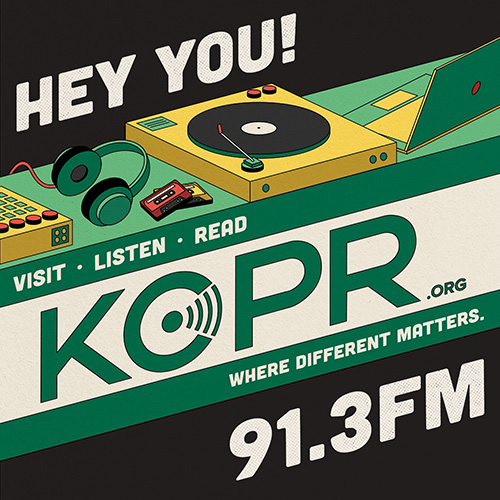Stephen Tootle

Graduation year and major:
1996 and History
Position at KCPR:
I was a regular disk jockey guy. First, I had that 1 am to 4 am shift. The only people who ever listened were the people cleaning up at Woodstock’s. Eventually, I had a regular daytime shift with my friend Greg Robinson, who was also a history major.
Favorite part about working for KCPR:
All my friends from KCPR were the first people I met at Poly because, as a transfer student, we were all friends, mostly because we all listened to the same kind of music. Most of us were also in bands. We either went to these great shows or opened for these bands when they were coming into town – bands like Beck, Green Day and Modest Mouse, before they were very famous, and even Silkworm and Bedhead. We played these bands on the radio and they were playing live music every week in really small, intimate shows, and some of them ended up becoming bigger, but we got to see him play in the garden.
It was crazy for me [when] my favorite band, Pavement, [who] was somewhat obscure at the time, and I was riding the bus and I saw somebody wearing a Pavement t-shirt. They were like “you should join KCPR.” I joined because somebody wearing a band t-shirt. I was so amazed that anybody else would like this band, but that’s how I ended up meeting everybody.
I genuinely believe that a lot of independent music is amazing and fantastic and people would love it if they just heard it. I looked for the songs that I thought were so great, that everybody would love and then people would listen to radio.
Where do you currently work and what do you do?
I am a history professor at [the] College of the Sequoias in Visalia, California. After I left Cal Poly, I got my master’s, then my Ph.D. and moved around a little bit. I taught at [the] University of Northern Colorado, Georgia State and then moved back to my hometown, Visalia. I’m still pretty involved in music. I started putting out records under the name Cosigner [and] ended up putting out a couple of singles and a couple of albums, which you can still find on Spotify.
How did, if at all, KCPR help or prepare you for your career trajectory?
KCPR helped me when I heard my own voice on the radio. I got that criticism and feedback about how to get better. That experience certainly carried over into my professional life to be organized and be concise with these lectures that I’m doing for my classes right now. I learned to have an outline and stick to it, be conversational and have somebody else listen to it, give constructive feedback on it, and then listen to what they have to say. I learned all that at KCPR because that was the first time I’ve ever heard myself talk in a sustained way. The other thing that was reinforced is that it’s better to be nice and get along with people.
As a young punk kid coming with a chip on my shoulder from the valley, a lot of people at KCPR were a lot nicer to me than I was to them at first. They taught me the value of being nice and I didn’t have to be so angry at the world. It was good training for a lifetime in academics too – being surrounded by people who don’t necessarily agree with you on everything but still managing to be decent to one another and get along. All important life lessons.
I’m probably the only person from KCPR who sometimes writes for National Review. I’m not a correspondent or anything, but every now and then I’ll do a book review. History stuff.

